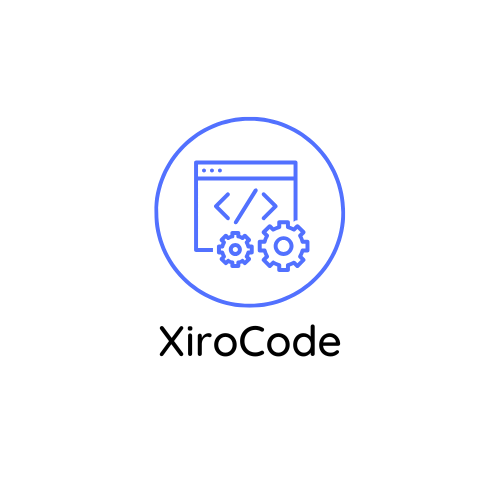In today’s tech-savvy world, a degree in software development isn’t just a piece of paper; it’s your golden ticket to the digital kingdom. Imagine crafting the next must-have app or solving complex problems with a few lines of code. It’s like being a wizard, but instead of a wand, you wield a keyboard.
With the demand for skilled developers skyrocketing, pursuing this degree opens doors to endless opportunities. Companies are on the hunt for tech-savvy heroes ready to tackle everything from creating sleek websites to building robust software systems. So, if you’ve got a knack for logic and a passion for innovation, diving into software development might just be your calling. Who wouldn’t want to turn caffeine into code and get paid for it?
Overview Of Degree In Software Development
A degree in software development equips students with critical skills for the fast-evolving tech industry. Coursework typically covers programming languages, software engineering principles, and system architecture. Many programs emphasize practical experience, incorporating projects that simulate real-world challenges.
Students often engage in collaborative projects. They may work alongside peers to develop applications or design systems, enhancing teamwork and communication skills. Internships frequently complement academic learning, providing valuable industry insight and professional connections.
Graduates with this degree find diverse career paths. Positions include software developer, systems analyst, and technical project manager. Many companies actively seek individuals with robust analytical skills and the ability to solve complex problems.
The range of available programs varies. Some institutions offer online options, accommodating different learning preferences and schedules. Accelerated boot camps also present alternatives for those seeking expedited learning experiences.
Accreditation plays a significant role in program selection. Recognized institutions ensure quality education and better employment prospects. Students often benefit from networking opportunities with alumni and industry professionals.
Job market trends indicate a steady demand for skilled software developers. According to the Bureau of Labor Statistics, employment in software development is expected to grow by 22 percent from 2020 to 2030. The increasing reliance on technology underscores the importance of pursuing this degree for a successful career in tech.
Overall, a degree in software development stands as a solid investment in one’s future, opening doors to numerous opportunities in a dynamic field.
Curriculum Highlights

Curricula in software development programs combine essential technical skills with practical applications. Learning these elements prepares students for various paths in the tech industry.
Core Subjects
Core subjects form the backbone of any software development degree. Courses typically include programming languages such as Python, Java, and C++. Students encounter software engineering principles, computer science fundamentals, and data structures. Additionally, subjects focus on system architecture and database management, emphasizing development methodologies. Practical experience is woven into these courses, often through hands-on projects that allow for real-world application. Graduates emerge with a solid foundation, equipped to tackle software development challenges.
Specialized Electives
Specialized electives enhance a software development degree by allowing students to tailor their education. Topics may include web development, mobile application creation, and cybersecurity. Electives explore advanced algorithms, artificial intelligence, and cloud computing, offering deeper insights. Students often choose courses that align with their career aspirations or interests. By selecting relevant electives, individuals develop niche skills, making them more appealing to potential employers in a competitive job market.
Career Opportunities

A degree in software development opens numerous career paths in the tech industry. Students with this education can explore various roles in an ever-evolving field.
Entry-Level Positions
Entry-level positions serve as a strong starting point for new graduates. Job titles often include software developer, web developer, and systems analyst. In these roles, professionals typically handle coding, debugging, and basic software design tasks. Many companies value internships that provide practical experience, enhancing a candidate’s employability. Starting salaries generally range from $60,000 to $80,000 annually, depending on location and company type. Expanding skills in specific programming languages can increase opportunities for growth.
Advancement Pathways
Advancement opportunities arise for those who demonstrate technical and leadership abilities. With experience, professionals can transition into roles such as senior software developer or technical project manager. These positions often involve overseeing teams and managing complex projects. Pursuing certifications in specialized areas, such as cybersecurity or cloud computing, contributes to career advancement. According to the Bureau of Labor Statistics, job growth in software development is projected at 22 percent from 2020 to 2030. Continued education and skill enhancement play critical roles in achieving higher-level positions within the industry.
Benefits Of Pursuing A Degree In Software Development

A degree in software development offers numerous advantages in today’s technology-focused environment. Graduates gain essential skills in programming languages and software engineering principles. Access to specialized electives allows students to focus on niche areas, making them more attractive to potential employers.
Job prospects remain bright, with entry-level positions offering salaries typically ranging from $60,000 to $80,000 annually. Systematic learning through hands-on projects builds confidence and competence in dealing with real-world issues. Networking opportunities arise through internships and collaborative projects, fostering relationships with industry professionals.
Employers value candidates with formal education due to their comprehensive understanding of software development processes. Continuing education through certifications enhances career advancement, empowering professionals to climb into senior and management roles. Flexible program options, including online and accelerated formats, accommodate various lifestyles and learning preferences.
Industry growth is significant, with the Bureau of Labor Statistics projecting a 22 percent increase in software development employment from 2020 to 2030. Exposure to cutting-edge technologies during studies equips graduates to handle evolving industry demands. Career diversity also emerges, with roles available in web development, systems analysis, and technical project management.
Overall, pursuing a degree in software development provides a solid foundation for a successful career in a thriving field. Graduates emerge with a blend of technical knowledge and practical experience, ready to tackle the challenges of modern software development.
Challenges Of Pursuing A Degree In Software Development
Pursuing a degree in software development presents a range of challenges that students must navigate. Time management becomes crucial as coursework, projects, and internships often coincide. Many students face the pressure of balancing academic responsibilities with personal commitments, which can lead to stress.
Technical proficiency is essential; mastering programming languages requires consistent practice and dedication. The fast-paced nature of technology means students must stay updated with the latest trends and tools. Students juggling multiple programming languages, frameworks, and methodologies may find this overwhelming at times.
Collaboration in group projects is another challenge. Effective communication and teamwork skills are vital for successful outcomes. Different working styles among group members can lead to conflicts, requiring students to develop conflict-resolution skills.
Financing education poses a significant hurdle. Tuition costs can vary widely, and students may need to take on debt or seek financial aid, which adds to their stress. Balancing part-time jobs while studying can also be demanding, impacting academic performance.
A demanding curriculum often includes complex subjects that require critical thinking and problem-solving skills. Coursework might feature intense subjects such as algorithms and data structures, pushing students to develop a deep understanding of technical concepts. Students might find that some topics are more challenging than anticipated.
Job market competition is another concern. Graduates must differentiate themselves in an increasingly crowded field. Networking through internships and industry events is important, yet many individuals feel uncertain about how to establish these connections effectively.
The skills gap between education and industry demands can also emerge. Employers may seek specific competencies that are not always emphasized in academic programs. This gap necessitates ongoing learning and skill enhancement, such as pursuing certifications in specialized areas.

